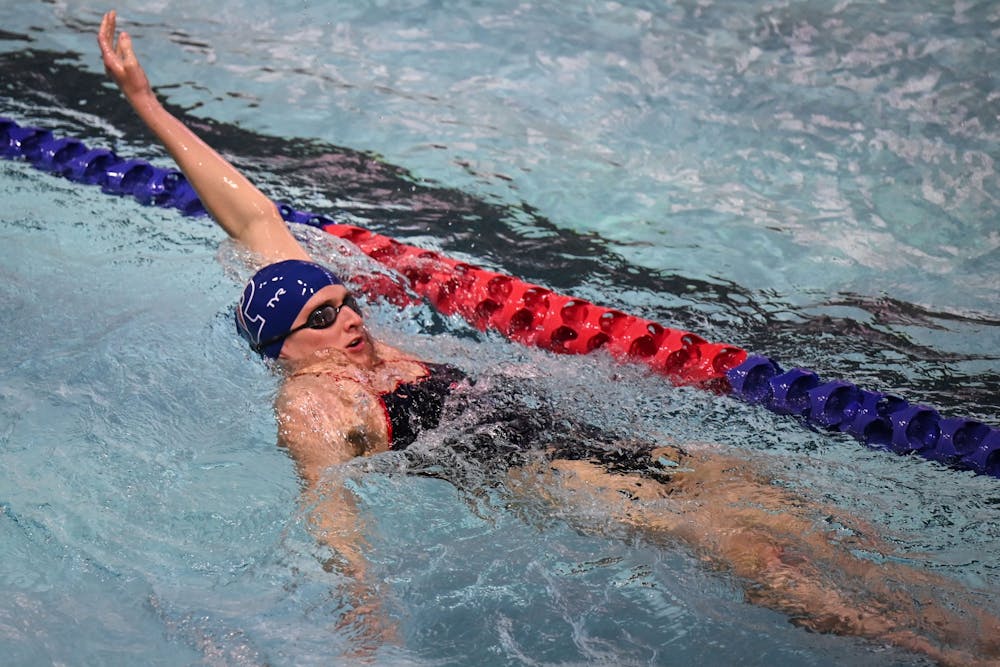
The National Collegiate Athletic Association announced in a press release that eligibility guidelines for transgender athletes will now be determined on a sport-by-sport basis by the national governing body of each sport, effective immediately.
After Penn swimmer Lia Thomas broke meet and program records at the Zippy Invitationals, the NCAA's policies on transgender athletes have drawn national attention. Under the new guidelines, the organization USA Swimming will be responsible for providing eligibility guidelines. At present, it has not released policies governing transgender athletes' eligibility for elite competition.
In a statement to ESPN, Penn Athletics said that it is aware of the new policy and would support Thomas with her eligibility in upcoming NCAA swimming competitions.
"In support of our student-athlete, Lia Thomas, we will work with the NCAA regarding her participation under the newly adopted standards for the 2022 NCAA Swimming and Diving Championship,” Penn Athletics told ESPN.
Prior to the announcement — which the NCAA cited as aligning with the International Olympic Committee's recently updated policy — the 2011 NCAA handbook delineated guidelines for transgender athletes which read that transgender women athletes could compete on the women's team after they had completed a year of testosterone suppression treatment and filed paperwork documenting it.
The handbook also refuted three "not well founded" assumptions in arguments against transgender women's participation: that they are not "real" women, that their bodies give them an unfair advantage in competition, and that labeling themselves according to their gender identity is a means of gaining an advantage over opponents.
The NCAA refuted the first two assumptions, stating that they go against transgender individuals' rights to express their own gender identity.
“Gender identity is a core aspect of a person’s identity,” the NCAA handbook stated. “And it is just as deep seated, authentic, and real for a transgender person as for others.”
In response to the third argument, Amy Wilson, managing director of the NCAA Office of Inclusion, maintained in a video discussion with NCAA correspondent Andy Katz that in the ten years since the policy’s inception, there has never been a case in which an athlete has sought to abuse organization policy by accessing women’s sports for purely an athletic advantage.
In May 2021, the NCAA faced backlash from the transgender community following the decision to host softball regional tournaments in states that banned the participation of transgender athletes, Sports Illustrated reported. In response, the NCAA pointed to an April statement concerning the inclusion of transgender student-athletes, which said that it "firmly and unequivocally supports the opportunity for transgender student-athletes to compete in college sports.”
The International Olympic Committee relaxed its guidelines regarding the participation of transgender athletes in November 2021.
The new guidelines do not explicitly mention a testosterone threshold and state that athletes should not feel pressured to undergo “medically unnecessary procedures." To deem an athlete eligible, IOC officials must confirm the athlete has no distinct competitive advantage and will not create a risk to the safety of other athletes.
The 2021 guidelines replace those established in 2015, which stated that transgender women must demonstrate a total testosterone level below 10 nmol/L for a calendar year prior to their first competition and throughout the competition period.
The Daily Pennsylvanian is an independent, student-run newspaper. Please consider making a donation to support the coverage that shapes the University. Your generosity ensures a future of strong journalism at Penn.
Donate




